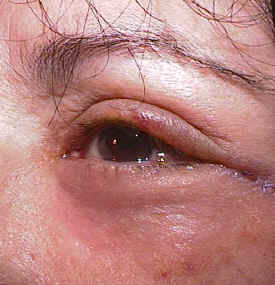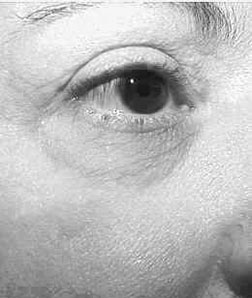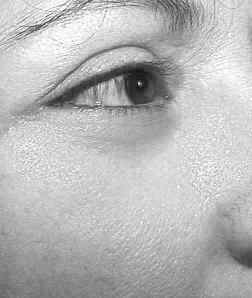Resurfacing Examples & Suggestions from Patients
What are some examples of RESURFACING
The pulsed laser can also remove scars, blemishes, and growths.
Can anyone have CO2 Laser?
|
Good candidates for laser resurfacing include:
- Fair to medium complexion
- Good healing qualities (no keloid formers)
- No use of acutane in the past year
|
Poor candidates for laser resurfacing include:
- Dark complexions
- Hyperpigmentation in scars
- Acutane users in the past year
- Cigarette smokers & heavy drinkers
- Keloid formers (raised thick scars)
|
Before and After Photographs
PRE/POST PHOTOS
How long is the recovery?
| |
7 Day Post Operation |
- This depends upon the individual and upon the procedure performed.
- It usually takes between seven and ten days for the skin to grow back.
- During the initial few days, the face could be covered by a bandage. The bandage helps with the oozing and could encourage healing.
- After resurfacing it is normal for the regenerating skin to weep and crust until the new skin has grown in. Dressings could be applied to aid skin regeneration. This healing and regenerating process takes about 9 days. You will want to postpone social engagements and avoid public con tact during this period.
|

Sun block should be applied when in the sun. Make-up can be worn after the originally week. Over the next few weeks, your fresh pink skin turns to a more natural tone, revealing a younger, smoother look. |
In most cases patients are fully recovered and back to their normal activities within 7-10 days.
- You can expect a marked wrinkle reduction. Complete elimination of all wrinkles in a single session is not a reasonable goal.
- Most patients are very happy with the results and notice that most wrinkles are completely eliminated or markedly diminished.
Suggestions from patients:
- Keep in mind that anything you use or wear for several days might be stained with the ointment; i.e. sheets, pillow cases, pajamas, towels, wash cloths, furniture, etc.
- Have a good supply of clean towels and wash cloths on hand.
- Straws are more comfortable when drinking while you have bandages. Also after the removal of bandages, straws help eliminate the transfer of ointment.
- Purchase food that does not require you to open your mouth very wide. Same idea as straw above.
- Q-tips are very helpful in applying the ointment around your eyes and mouth. Also, they are great for removing the ointment from the corners of yours eyes and off the eyelashes.
- Stretch hair bands that go all the way around your head are helpful for keeping hair out of the ointment.
- Have a good supply of small ice cubes or ice chips.
- Keep all your supplies at a level that will allow you to reach without having to lean over-this can be uncomfortable.
- It is not advisable to get close to a hot stove or oven for several days after your surgery as this could cause a burning sensation (just like a sunburn).
- You might want to wear tops that button as it is could be uncomfortable to pull things over your head.
- When planning your surgery, check your calendar for special events that might occur within 3 weeks after surgery.
.png)


